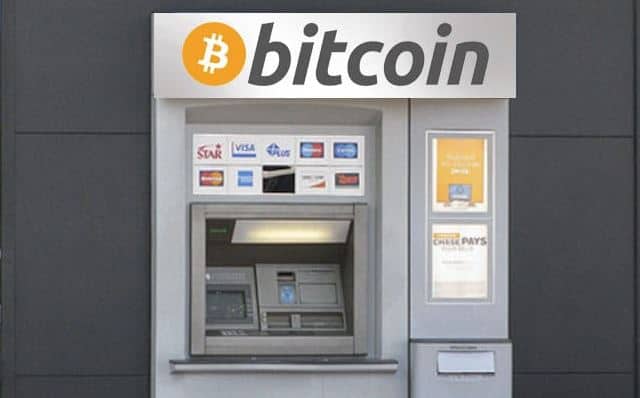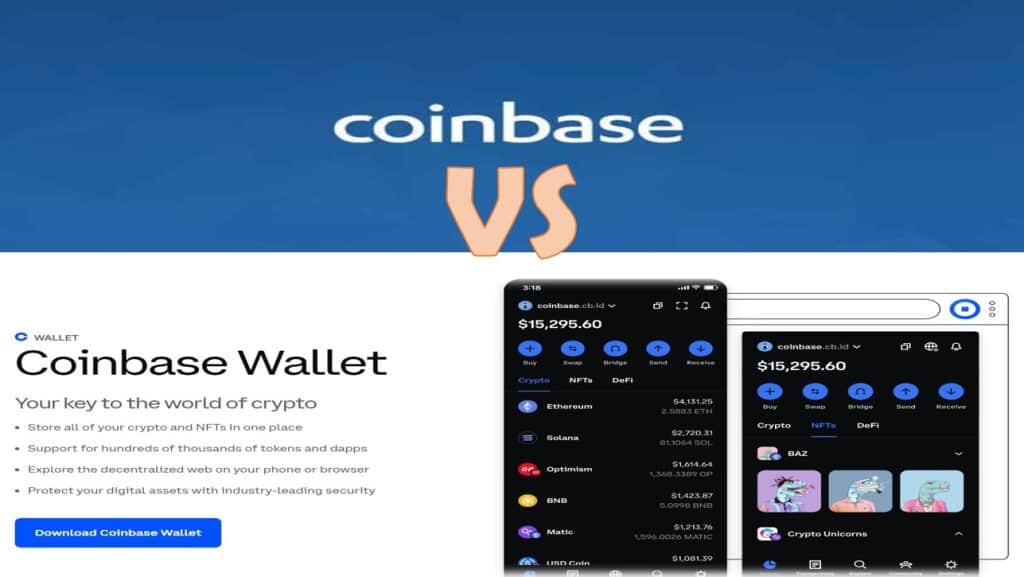
Hot vs Cold Wallets: Finding Your Crypto Comfort Zone
Last updated on July 19th, 2023 at 05:33 pm
Cryptocurrency has become a hot topic in recent years, this trend will only continue as the interest in, and adoption of, Bitcoin and other cryptos continues across the world.
But with this increasing popularity comes the need for better understanding of the space and the technology that underpins it. This is coupled with the need for diligence to the security measures that have become best practices in the space.
One of the most important decisions you will need to make when it comes to the storage of your crypto is whether to use a hot or cold wallet.
A hot wallet is a cryptocurrency wallet connected to the internet, enabling quick access and real-time transactions. It stores private keys online, providing convenience, but exposing it to potential security risks like hacking and malware. Hot wallets are generally desktop, mobile and online wallets.
A cold wallet is an offline storage solution for cryptocurrencies, ensuring enhanced security by keeping private keys offline and isolated from internet-connected devices. It typically involves hardware wallets or paper wallets, safeguarding digital assets from online threats while sacrificing some convenience for increased protection.
As a seasoned crypto enthusiast who has been actively involved in the cryptocurrency market since 2017, I have gained extensive experience utilizing various cryptocurrency wallets.
With a deep understanding of the differences, benefits, and drawbacks of hot and cold wallets, I am eager to share my knowledge to help others navigate the complex world of cryptocurrency storage.
My extensive knowledge and experience with both hot and cold wallets have positioned me in a unique circumstance within the crypto space. As such, I’m dedicated to sharing my insights to help others understand the nuances and make informed decisions regarding cryptocurrency storage.
So, let’s dive deeper into the details.
Hot vs Cold Table
Cryptocurrency Wallets
In the world of cryptocurrency, a crypto wallet is an essential tool that allows individuals to securely store, send, and receive digital currency.
Think of a crypto wallet as a digital banking app that stores private keys used to access, send, and receive cryptocurrencies. Crypto wallets play a crucial role in the ever-expanding crypto market.
Unlike traditional bank accounts, cryptocurrency wallets require a private key to access the funds, making them a safe and reliable solution for storing cryptocurrencies.
Ready to dive deeper into the world of private keys and secure your cryptocurrencies like a pro?
Unlock the secrets of private key management and fortify your digital assets by exploring my comprehensive guide… click here to learn more now!
In order to manage your private keys, these digital wallets come in many forms, some are software, some are hardware, but all serve the purpose of securely storing and managing your crypto assets.
Given the increasing importance of cryptocurrencies in today’s world, using the right crypto wallet is essential for anyone who desires to conduct transactions with ease and security.
To further explore the world of crypto wallets, let’s take a closer look at the to forms of wallets; hot and cold wallets.
Understanding Hot Wallets
Hot wallets are a type of cryptocurrency wallet that are connected to the internet or online networks, allowing users to access and manage their digital assets conveniently.
These desktop, mobile and online based wallets store private keys online, enabling users to perform real-time transactions easily.
Most exchanges offer hot wallets to their users. This allows customers to buy, sell, trade and store digital assets directly on their platform. However, this convenience comes at a cost.
Hot wallets provided by cryptocurrency exchanges are also custodial wallets.
This means that the platform controls the private keys to the crypto assets, so ultimately, until removed from the platform, the exchange owns the cryptocurrency.
It should be noted that not all hot wallets are custodial in nature.
Most hot wallets are, in fact, noncustodial. Which means you are in control of your private keys, so you are in complete control of your cryptocurrency.
Understanding the difference between custodial and noncustodial wallets is probably the most critical thing to comprehend when it comes to private key management.
As a matter of fact, it’s so important that I’ve created a comprehensive post detailing each one.
Click here now to discover everything your need to know!
Once you’re comfortable with the differences between custodial and noncustodial wallets, then your next step is to decide if a hot or cold storage solution is best for you.
So, let’s dive even deeper into hot wallets by seeing what options are currently available in the space.
Web Based Wallets
Web-based wallets, also known as online wallets or hosted wallets, are cryptocurrency wallets that are software or extensions, that operate on web-based browsers, platforms or exchanges.
Users can access these wallets through a web browser. Some are accessed by navigating to a specific platform, while others require the download, or install of software or an extension.
Two popular web based hot wallets include MetaMask and Brave Wallet.
MetaMask is a web-based cryptocurrency wallet available as an extension on the Chrome, Firefox and Brave browsers. It allows users to securely store their private keys in a digital wallet and interact with decentralized applications (dApps).
MetaMask also provides users with access to popular exchanges such as Kyber Network, Uniswap and Pancake Swap.
Brave Browser Wallet is a crypto wallet built into the web browser. It allows users to securely manage and store their digital assets, all within the Brave Browser.
Brave is a security first browser created from chromium, but without all of the trackers. Brave is the browser I recommend for anyone using hot wallets, or who want to have increased security when being online.
Still want more information about software and web-based wallets?
Then you want to read the breakdown I did here.
But, if you’re always on the go, then a mobile wallet may be just what you need.
Mobile Wallets
Mobile wallets are applications installed on smartphones or tablets, allowing users to manage their cryptocurrencies on the go. These wallets are app based, and are accessed and utilized just like any other app you would download to your cell phone.
They offer the flexibility of accessing funds anytime and anywhere.
Mobile wallets often provide additional features like QR code scanning for easy transactions, and integration with other mobile apps, making them a preferred choice for users who prioritize mobility.
Two popular mobile apps include Trust Wallet and Coinbase Wallet.
Trust Wallet is an open source, multi-currency wallet that supports Ethereum and other digital assets. It provides users with a secure way to store their private keys and manage their digital currencies on the go.
Aside from its main wallet feature, Trust Wallet also offers a built-in dApp browser and staking service. This wallet is available on both iOS and Android.
Coinbase Wallet is a noncustodial mobile wallet that allows users to store and manage their digital assets securely. It offers full control over private keys, user-friendly features like QR code scanning for easy transactions, and integration with leading blockchain networks.
The Coinbase Wallet also supports hundreds of decentralized applications (dApps) built on top of the Ethereum network, and offers users the option to connect to their Coinbase account. Coinbase Wallet is available on both iOS and Android devices.
Unfortunately, sometimes newbies to the space get confused between Coinbase and Coinbase Wallet. To help you understand the difference, I’ve written a thorough article about it here.
Still want more information about mobile wallets?
Then you want to read the breakdown I did here.
But for many of us, the preference is using a computer. So, let’s take a look at desktop wallets.
Desktop Wallets
Desktop wallets are software applications installed on personal computers or laptops. They offer a local storage solution for cryptocurrencies, while providing users with full control over their private keys.
Desktop wallets can be further categorized into two types: full-node wallets and lightweight wallets.
Full-node wallets require users to download and synchronize the entire blockchain, such as with Cardano and the Daedalus Wallet.
This type of desktop wallets offers the highest level of security, but it requires significant storage space and computing power.
Lightweight wallets, also known as SPV wallets, download only a portion of the blockchain, striking a balance between security and resource requirements.
Two popular, multi-currency wallets include Guarda and Exodus.
Guarda Wallet is a noncustodial, multi-currency wallet that supports more than 45 blockchains and over 10,000 digital assets. It offers users full control over their private keys and enhanced security features.
The wallet also includes built-in exchange services so you can quickly swap between different digital assets. You can even purchase cryptocurrencies with a credit or debit card directly from the wallet.
Guarda Wallet also has web-based and mobile wallet options to provide users with different ways to access their assets.
Exodus is one of my favorite wallets!
It is a multi-currency, noncustodial wallet that supports over 100 digital assets. It offers users full control of private keys and enhanced security features.
Like Guarda, Exodus also has a built-in exchange so you can quickly swap between different digital assets, and it also offers users web-based and mobile options.
Still want more information about desktop wallets?
Then you want to read the analysis I did here.
Now, let’s review some of the positive and negative aspects of hot wallets.
Pros & Cons of Hot Wallets
Advantages & Disadvantages of Hot Wallets
| Advantages | Disadvantages |
|---|---|
| Accessibility and Convenience | Vulnerability to Hacks and Malware |
| Conduct Real-time Transactions | Potential Dependency on Third-Party Security Measures |
| Private Key Control (non-exchange) |
The primary advantages to using a hot wallet is having easy access to digital assets anytime and from anywhere with an internet connection.
Due to this internet connection, hot wallets enable instant and real-time transactions, allowing users to send and receive funds quickly.
However, this internet connection is a double edged sword.
Because they are connected to the internet, it makes them susceptible to hacking attempts and malware attacks.
Malicious actors can target vulnerabilities in the wallet software, or use phishing techniques to gain unauthorized access to private keys, putting users’ funds at risk.
Furthermore, users must trust the wallet creators, which introduces an element of risk, and potential reliance, on external entities for the protection of their private keys.
However, for those who are looking for the best option to store their assets for the long term, cold storage is the answer.
Understanding Cold Wallets
A cold wallet is the complete opposite of a hot wallet. Also known as offline wallets, they are a crypto storage solution that are never or infrequently connected to the internet.
This disconnection from the internet provides an additional layer of protection for your private keys and thus your digital assets.
This makes cold wallets the preferred choice for long-term storage, or for securing large amounts of cryptocurrency.
Types of cold wallets include: paper wallets, hardware wallets and air gapped wallets.
Paper Wallets

Paper wallets have been a part of the cryptocurrency space almost since its inception. Initially, this was one of the only ways to store your private keys offline.
Paper wallets are simply printed pieces of paper that contain your public and private keys. While they are cheap and easy to make, paper wallets are not as secure as hardware wallets.
Paper wallets are completely offline, as the private keys are not stored on any electronic device.
This method provides a high level of security since it eliminates the risk of online attacks or malware. However, it is essential to securely store and protect the paper wallet from physical damage or loss.
These wallets are still in limited use today. They are primarily used with Bitcoin ATM machines.
This reduction is due to a combination of factors which you can read about here.
Hardware Wallets
On the other hand, hardware wallets, such as Ledger and Trezor, are physical devices that store your private keys offline.
Generally, these devices resemble USB drives and come with built-in security features.
Hardware wallets generate and store private keys securely within the device itself, making it extremely difficult for hackers to access them.
When a transaction needs to be made, the hardware wallet connects to a computer or mobile device via USB or Bluetooth, allowing users to sign and authorize transactions securely.
They are widely considered to be the most secure way to store cryptocurrency.
As using a hardware wallet is the best method of crypto storage for most people, having an intimate understanding of what they are, as well as their use is of utmost importance.
I so firmly believe this that I have created an extensive outline to cover all of these aspects.
Click here to read more about hardware wallets.
Air-Gapped Wallets
Before I continue, I would like to make it clear that while I agree that an air-gapped wallet is certainly the highest level of security you can get for storing your cryptocurrency, I do not recommend its use for the average cryptocurrency investor.
Due to the technical expertise required to properly set-up, maintain and use this type of device, less tech-savvy users will lose access to their digital assets.
For those who might doubt my assessment of this, watch the video that I have here with Andreas Antonopoulos and Jameson Lopp.
Although, the main conversation in this video revolves around the Ledger Recover service, they talk about this issue of this style of crypto storage and the risks due to a lack of technical expertise.
Please take the time to watch this prior to attempting this type of crypto storage solution!
Offline or air-gapped wallets are created by generating private keys on a device that has never been, and will never be connected to the internet. This ensures complete isolation from online threats.
The offline wallet can be created using a dedicated computer or a hardware wallet in an offline mode. Transactions are then signed offline and transferred using alternative methods, such as QR codes or removable media.
Air-gapped wallets offer an exceptionally high level of security, but may be impractical for most people due to the technical expertise required to set up and use them effectively.
Let’s take a look at the positive and negative aspects of cold wallets.
Pros & Cons of Cold Wallets
Advantages & Disadvantages of Cold Wallets
| Advantages | Disadvantages |
|---|---|
| Enhanced Security and Protection | Limited Accessibility |
| Isolation from Online Threats | Potential Loss or Damage of Device |
| Noncustodial | Requires a Learning Curve |
The primary advantage of cold wallets is that they provide an unparalleled level of security for cryptocurrencies.
They accomplish this by keeping private keys offline, they eliminate the risk of online attacks, hacking attempts, and malware infections.
Cold wallets are highly resistant to unauthorized access, providing users with peace of mind when storing their digital assets.
However, cold storage wallets are not ideal for frequent asset transactions. This frankly is purposeful, as it adds to the overall security of the device.
Furthermore, cold wallets, especially paper wallets, carry the risk of physical loss or damage.
If a cold wallet is lost, destroyed, or falls into the wrong hands, the associated digital assets may become irretrievable. This can be mitigated by practicing good private key management.
Hardware wallets, paper wallets, and offline or air-gapped wallets offer various options to suit different security preferences and technical capabilities.
By carefully weighing the advantages and drawbacks, you can decide if a cold storage solution is the best option for you.
Choose the Right Wallet for You
So, have you figured out which one is right for you?
Ultimately, it really depends on your individual needs and preferences.
If you’re still unsure about which option may be best for your unique circumstances, let’s take a look at a few items to factor into your decision making.
Your Security Requirements

A good place to begin is coming to terms with your security requirements and your overall risk tolerance.
If having maximum security is a primary concern, then cold wallets are the answer.
However, if your tolerance for risk is a bit higher, or your prefer convenience and frequent access to funds, a hot wallet might be suitable.
So let’s take a look at that.
Transaction Frequency
Considering how often you plan to engage in cryptocurrency transactions is an important factor.
If you are an active trader, or frequently send and receive cryptocurrencies, a hot wallet’s real-time transactions and easy accessibility may be advantageous.
Conversely, if you primarily hold your cryptocurrencies as long-term investments, a cold wallet’s enhanced security may outweigh the need for frequent transactions.
Asset Portfolio Size
I don’t know about you, but I don’t have an unlimited amount of money to invest in crypto… believe me, I wish I did!
So, evaluating the size of your cryptocurrency portfolio can help determine which wallet may be best for you.
If you are new to cryptocurrency, or only plan on holding a small amount of funds, a hot wallet may be sufficient for you needs.
But if you plan on investing large sums of money, or keeping your crypto for a long period of time, a cold wallet is the better option.

Again, this option may require a bit more effort to set up, but the added security is well worth it.
Ultimately it’s up to you to decide which option is best.
However, may I put out for your consideration that having multiple options may best suit all of your needs… let’s take a look.
Wallet Combinations
The number of cryptocurrencies seems to increase on an almost daily basis… and frankly, what you plan to do with them probably does as well.
If this is the case, striking a balance between accessibility and security can make your crypto journey a lot easier.
So why not consider a combination of hot and cold wallets. This is often the most effective way of transacting in the space.
Let’s review the reasoning again.
Hot Wallets for Daily Use
Hot wallets are ideal for day-to-day transactions and having immediate access to your funds.
Consider utilizing a hot wallet for smaller amounts of cryptocurrency that you actively use for purchases or trading.
In most cases, a noncustodial wallet is probably the best option for most users. So, you can choose a reliable web-based or mobile wallet that provides convenience without compromising security.
Ensure you follow recommended security practices for the device you are using.
Cold Wallets for HODLing
Cold wallets are best suited for long-term storage, and securing larger amounts of cryptocurrency.
As I mentioned earlier, a hardware wallet is currently the best cold storage option for the majority of crypto users. So consider acquiring a hardware wallet for maximum offline security.
Again, I use and recommend Ledger and Trezor.
Once you have your private keys safe in your hardware wallet, be sure to store your cold wallet in a safe place, and take necessary precautions to prevent physical loss or damage of the device.
Finally, be sure to properly back-up your hardware wallet, so if the unthinkable happens and it is lost or damaged, you can restore your wallet and regain access to your assets.
This step is SO CRITICAL, that I have dedicated an entire article to just this topic.
Please head here NOW and read that!
So let’s bring this all together.

Choose Your Custody Wisely
When it comes to cryptocurrency storage, the choice between hot and cold wallets can be confusing. Hopefully I’ve provided a starting point for you to research both options and decide which one is right for you based on your individual needs and preferences.
Remember, a hot wallet is more convenient but less secure. With options such as web-based, mobile, and desktop wallets, you can enjoy the convenience of real-time transactions, but your funds are more vulnerable.
While a cold wallet is more secure, it requires more effort to set up. Not to mention hardware and paper wallets are much less convenient for frequent or smaller transactions.
Assess your individual needs, considering factors like security requirements, transaction frequency, and asset portfolio size.
Keep in mind that there is no one-size-fits-all solution when it comes to cryptocurrency wallets. What works for one person may not be suitable for another.
By deciding which combination is best for your individual needs, you’ll be able to embrace the exciting cryptocurrency space while keeping your assets safe.
Frequently Asked Questions (FAQ)
Q: What is the difference between hot and cold wallets?
A: Hot wallets are connected to the internet, allowing for real-time transactions and easier accessibility. Cold wallets, on the other hand, are not connected to the internet providing more security but less convenience.
Q: Is it safe to use a hot wallet?
A: Hot wallets can be safe, as long as you practice good security protocols. This means using a reliable web-based or mobile wallet, and being vigilant with your private keys and passwords.
Q: What is the best kind of cold wallet?
A: Hardware wallets are currently the most secure option for cold storage. Popular hardware wallet manufacturers include Ledger and Trezor.
Q: What are the benefits of using a combination of hot and cold wallets?
A: Combining the two types of wallets allows for flexibility and convenience. Hot wallets are great for day-to-day transactions, while cold wallets provide added security for larger amounts or long-term storage.
Q: Is it possible to lose access to my crypto if stored in a cold wallet?
A: Yes, it is possible to lose access to your crypto if stored in a cold wallet. This is why it is important to properly back up and store your cold wallet in a secure location. It is also important to take necessary precautions to prevent physical loss or damage of the device.
Q: Is there a risk of being hacked if I use a hot wallet?
A: Yes, there is always the possibility of being hacked when using any type of wallet. To minimize the chance of this happening, be sure to follow recommended security protocols and to only use reliable wallets.
Q: Should I store all my crypto in one wallet?
A: This is not recommended. It is best to spread your holdings across multiple wallets and to take advantage of the benefits of both hot and cold wallets. This will help provide an additional layer of security for your assets.
Disclaimer
The information provided here is for INFORMATIONAL & EDUCATIONAL PURPOSES ONLY!
View our complete disclaimer on our Disclaimer Page








